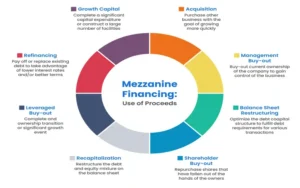What is a market leader?
A market leader is a corporation with the highest market share within an industry and can frequently leverage this position to influence the competitive environment and market trends. A market leader usually holds the most significant market share or proportion of total sales in a given market. Other measures, such as distribution coverage, brand loyalty, pricing, profit margin, and promotional spending, may also show it superior to its rivals.
Such a corporation might be the first to create a good or service, enabling it to establish the standard for messaging, specify the ideal features of the good, and establish itself as the brand that customers identify with the good itself.
Market Leadership’s Operation
One way for a business to become the leader in the market is to introduce a product or service first. The product or service needs to be sufficiently unique to draw in customers. The business needs to be abreast of customer preferences to stay ahead of the competition. A business can aggressively sell its version of the product with unique characteristics if it enters a market as a rival to the first mover or moves ahead of it. Rivals vying for market leadership may invest significantly in product development and market research, then use customer data to create features that enhance an already-existing product.
Market leaders could be able to regulate pricing by utilizing economies of scale. Because they have confidence in market leaders, customers will buy from them to reduce risk. Market leaders use aggressive advertising to capitalize on their thorough understanding of the individuals within their client base who make purchasing decisions and to fortify their brand. Market leaders are more likely to be creative in implementing the technologies and procedures that will enable them to outperform their rivals and draw in the best development partners.
Market Leader Examples
To keep its dominant market position, a business must draw in new clients who may not be familiar with its offerings and cultivate brand loyalty among its current clientele. The business can also draw in clients from rivals by determining the best way to balance cost and quality. It is simple to recognize consumer-focused market giants like Apple, Google, and Amazon in this day and age of the internet. Caterpillar and Boeing are two instances of capital goods.
Market leaders must exercise caution in how they use and acquire market share. Antitrust lawsuits may be brought against a firm if it appears to be abusing its position or becoming overly dominant in the market. Regulators had once targeted Microsoft, for example. Furthermore, a market leader may not always be the most profitable from an investor’s standpoint. It is possible that even with the largest market share, the company’s overall costs—which include R&D, manufacturing, marketing, and other expenses—are too high to enable it to outperform its rivals in terms of profitability.
Conclusion
- In most industries, a market leader has the most significant piece of the market.
- Leaders in a market may also be the first to come up with new goods or services.
- A few examples of market winners are Apple and Amazon.


































